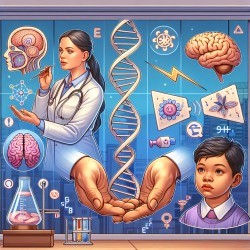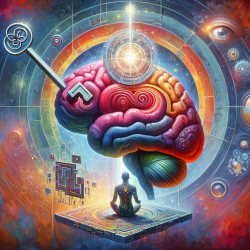Introduction
The world of special education and therapy services is constantly evolving, driven by the need for innovative solutions and informed practices. One of the emerging areas of interest is the application of Marxist theory to modern educational and therapeutic settings. This blog explores how insights from the research article "Marxism, U.S. Democracy, and Lenin’s Commune Against Capitalism" can be applied to improve online therapy services, particularly in addressing therapist staffing shortages and enhancing service delivery.
Understanding Dual Power in Therapy
Fredric Jameson’s concept of "dual power," as discussed in the research, offers a framework for rethinking power dynamics in educational and therapeutic environments. Dual power refers to the coexistence of two governing bodies or systems, one of which challenges the established order. In the context of online therapy, this concept can be translated into creating collaborative networks that empower both therapists and clients, fostering a more equitable and responsive service delivery model.
Application to Online Therapy
Incorporating dual power into online therapy involves several strategic approaches:
- Collaborative Networks: Establishing networks where therapists can share resources, strategies, and support. This approach aligns with the idea of community-driven power structures that challenge traditional hierarchies.
- Client Empowerment: Encouraging clients to take an active role in their therapy process, similar to how Lenin’s commune emphasized grassroots participation. This can be achieved through personalized therapy plans and feedback mechanisms.
- Resource Allocation: Addressing therapist shortages by utilizing a collective approach to resource management, ensuring that services are distributed based on need rather than profit.
Encouraging Further Research
While the application of Marxist theory to online therapy is still in its nascent stages, it opens up a plethora of research opportunities. Practitioners are encouraged to explore how concepts like dual power and the commune can further enhance therapeutic practices. Engaging in interdisciplinary research that combines political theory with educational psychology could yield innovative solutions to current challenges.
Conclusion
By integrating Marxist principles into online therapy, practitioners can create more equitable and effective service models. This approach not only addresses immediate challenges like therapist shortages but also contributes to a broader transformation of the educational and therapeutic landscape. For those interested in delving deeper into these concepts, the original research paper, "Marxism, U.S. Democracy, and Lenin’s Commune Against Capitalism," provides a comprehensive foundation for further exploration.
To read the original research paper, please follow this link: Marxism, U.S. Democracy, and Lenin’s Commune Against Capitalism.










